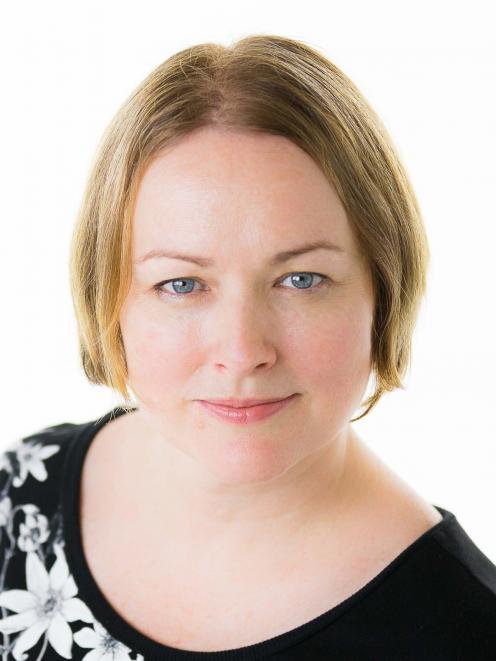
But those many hours of waitressing, bar-keeping, factory work and paper runs proved to be excellent training for such a varied career.
``Being able to understand where many different types of people are coming from is a huge asset,'' Ms Dempster (47), who hails from Dunedin, said.
Earlier this year, Ms Dempster was appointed New Zealand ambassador to the United Nations in Geneva.
In a typical day, she might deliver a statement on New Zealand's view on human rights issues or the situation in specific countries or support New Zealand teams attending global meetings on issues such as migration or public health.
She might sit down with a group of ambassadors and try to narrow differences on controversial issues or be briefed by the Red Cross on a humanitarian crisis unfolding.
She particularly enjoyed challenge, diversity and solving complex tasks and had worked on some major issues over the years, including refugee crises, human rights, disarmament, conservation and environmental sustainability, she said.
One of four children, she grew up in Halfway Bush, and enjoyed an ``active and entertaining'' childhood.
``We all ended up taking completely different paths in life, which I put down to the wide variety of experiences my parents gave us.
``Sports and music were really important features in our house and Saturdays were insane with drop-offs and pick-ups all around town for everyone in the family.''
Logan Park High School was a ``great incubator'' for her interest in music and drama. She got the travel bug representing New Zealand at a drama festival in the United States in 1987 and worked three part-time jobs to get travelling again after leaving school.
``I had some mad experiences in Europe and New York, living on very little money but having a lot of fun,'' she said.
Realising she needed to further her education, she returned to Dunedin to continue studies at the University of Otago. She gained an arts degree (history) with first-class honours.
Joining the Ministry of Foreign Affairs and Trade in 1993, she had been keen to learn Mandarin and be posted to China.
She had tried to focus on Asian history and politics at university and could see China was going to be a major player and ``really significant'' partner for New Zealand.
In early 1994, she was offered the opportunity to study Mandarin full time, which was followed by a posting to Beijing.
In that role, she reported on economic issues, worked with New Zealand exporters on trade access and also covered China's development, which meant she got to travel to some ``really far-flung parts'' of the country.
She returned to New Zealand in 1998 and the following year started working on the United Nations and multilateral issues.
``Multilateral work can be an exercise in patience and creativity. It might seem like 193 countries have been arguing over placement of a comma for two days, but it's the work going on in the corridors, cafes and dining tables that is often achieving the progress,'' she said.
She was posted to Geneva from 2002 to 2006, a time when there were negotiations to create the Human Rights Council.
For the past five years, she had been fortunate to work on Antarctic issues, which was one of the most challenging, fascinating and rewarding jobs she had done, she said.
``Aside from the fact that our weather reminds us about Antarctica quite frequently, a lot of New Zealanders probably don't fully appreciate how incredible the continent is.
``Leading our world-class scientists and our innovative and committed policymakers, as we worked to deepen protection for Antarctica and to learn more about its effect on the world, was career defining,'' she said.
That culminated in an agreement being reached in October last year to establish the world's largest protected marine area in the Ross Sea region, which was ``definitely a career highlight'', she said.
``I could not have been prouder of the New Zealand team,'' Ms Dempster said.
In April this year, she was appointed New Zealand permanent representative to the UN in Geneva, where she is responsible for the country's engagement with the diverse parts of the UN there.
The UN's office in Geneva is its European headquarters and the city also hosts some of the UN's specialised agencies such as the International Labour Organisation - the oldest part of the UN - and the World Health Organisation.
The best part of living in Geneva was the people, she said - ``this is a city filled with smart, interesting people working on meaningful things'', she said.
Geneva was very cosmopolitan, between 50% and 60% of its population coming from other countries, and an added bonus was that it was her husband Mike's hometown.
It was a beautiful, clean city with a lovely lake and surrounded by accessible mountains, but it was very expensive, and even things such as swimming lessons for the children could ``really set you back'', she said.
Geneva could be very grey and miserable in winter, so lots of people headed to the mountains at weekends. In summer, it came alive with swimming in the lake, festivals and events happening in the streets.
Her mother, sister, niece and nephew still lived in Dunedin and she enjoyed visiting them and showing her husband and two young daughters her favourite places, Ms Dempster said.
``I love the wildness of the peninsula, the goldrush-era buildings and the beautiful beaches around the city,'' she said.
As for the future, her assignment was for four years - ``so that's about as far as I can think for the moment''.












